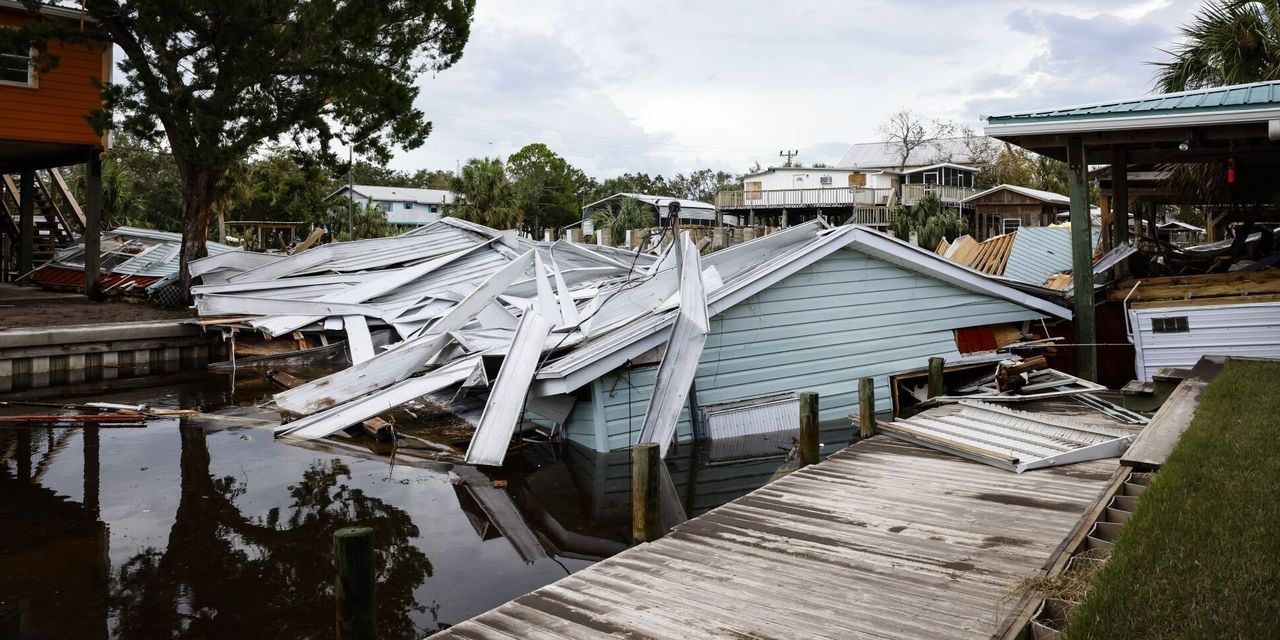Huge losses from national disasters prompt industry to jack up prices and pull back from some markets; ‘worst possible scenario’ for consumers
After Allstate suffered billions of dollars in losses and failed to get the rate increases it wanted, it resorted to the nuclear option.
The insurance giant threatened last fall to stop renewing auto insurance for customers in three states that hadn’t given in to its demands, which would have left those policyholders scrambling for coverage. The states blinked.
In December, New Jersey approved auto rate increases for Allstate averaging 17%, and New York, a 15% hike. Regulators in California are allowing Allstate to boost auto rates by 30%, but still haven’t decided on its request for a 40% increase in home-insurance rates after the insurer refused to write new policies.
For many Americans, getting insurance for both their cars and homes has gone from a routine, generally manageable expense to a do-or-die ordeal that can strain household budgets.



People moving into areas of high risk are only a tiny portion of the problem. The existing owners, and their kids, are already too much risk for a lot of places. Hundreds of thousands of retiree’s already live in beach front condos that have been there for 30 years or more, and they have no way to move. There are millions more in similar places, that just have to accept whatever happens to them, because they have no resources to move, and a fixed or non existent income.
That problem is going to be the biggest one when dealing with climate change as a species. Moving hundreds of millions of people, who can’t afford to move, to places that don’t want them to move there. Interspersed with random natural catastrophes causing horrible loss of lives and resources.
I have always thought that the people you are talking about should be able to get insurance, maybe even at a reasonable rate, but if/when a natural disaster occurs the insurance payout should be for a property/place not in a high risk zone rather than rebuilding, and that land should then be disallowed for human habitation.
Basically a compromise of sorts. I’m sure someone will tell me why I’m wrong though, lol.
In some places that’s exactly what has been done. Usually the government uses eminent domain on the land rather than allow reconstruction. The problem being the cost. Most cities and states would have nowhere near enough money to move a fraction of the homes in danger, or even pay for their relocation when they’re destroyed.
While sea levels rising may be something that someone 30 years ago didn’t predict, most of the other risks were well known 200 years ago.
You’re absolutely right. This is a problem that requires some amount of direct government assistance. Beachfront housing is significantly more costly than people think it is and than it used to be, and it’s only going to get worse. If you can’t afford regular repairs after storms (or if a collectively relevant insurance pool can’t), you can’t afford to live there, and for people who are already there and can’t afford to easily get out, some government assistance is more than warranted.
Replace climate with war and this is how refugee groups have lived for centuries. Life doesn’t always work out, bad choices can have very long timelines and there’s likely zero way to bail everyone out, even with the most altruistic of motives.
Bailing them out might not work at scale but ensuring they have somewhere to live when things get too hot, literally and metaphorically speaking, is feasible and will prevent the negative consequences of millions of displaced people.